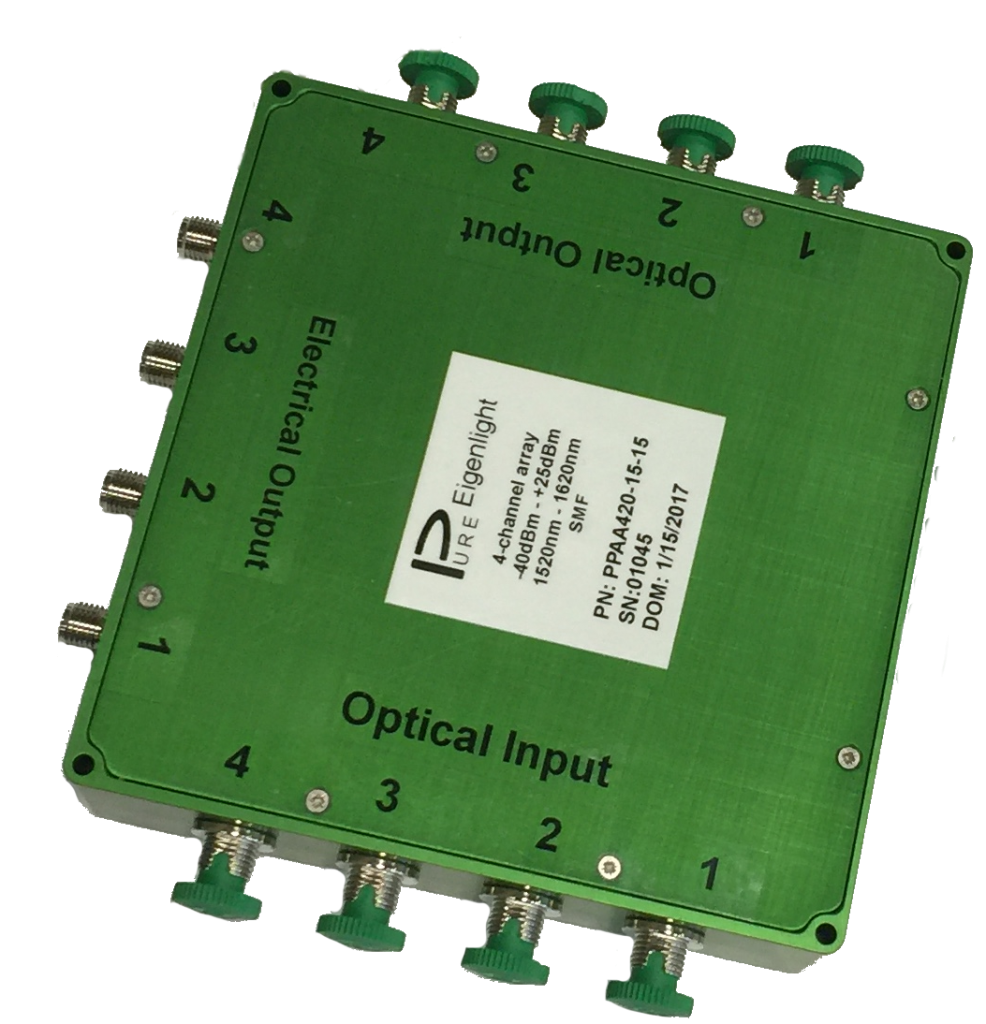Our portfolio of high performance inline fiber optic power monitoring components uses technology that extracts a fraction of light from the fiber without breaking the continuity of the transmitted signal. The power monitors have extremely low insertion loss, low polarization dependent loss and high directivity and are used in 100G/400G systems around the world.
The products are ideal for monitoring the optical power of highly sensitive optical systems such as Optical Networks, optical networking subsystems, fiber lasers, optical sensor systems and medical laser systems. The technology deliver advanced performance through exceptional specifications. Discover a cost effective way to monitor power within an optical fiber while reducing manufacturing, supply chain and component costs.
Pure Photonics is proud to be the exclusive distribution channel in the Americas, making this superior Telecom technology available for usage in universities, labs and niche applications.
The core of the technology (GR-468 Telecordia Qualified) is an integrated optical tap and photodiode (see figure below) based on patented technology, which measures power within an optical fiber.
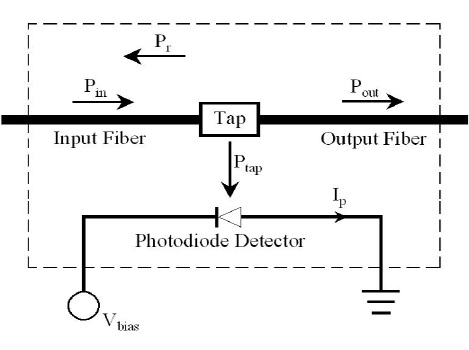
By preserving the continuity of the transmitted signal and only removing a small fraction of light from the fiber core, the products provide a very low Polarization Dependent Loss (PDL<0.01dB) and low insertion loss (as low as <0.05dB) over a large wavelength range (1280nm-1610nm for SMF). This makes the device suitable for highly sensitive applications, such as medical lasers, fiber lasers and optical sensor systems. In addition, the products are ideal for power monitoring of 100/400G Long Haul, Metro, FTTX and Data Center Optical Networks, as well as optical networking subsystems (ROADMs, EDFAs, WSS, etc.) where low insertion loss and low PDL optical components are required.
The optical tap technology provides a high directivity (>35dB), allowing the power in one direction within the optical fiber to be measured without the influence of the transmitted power in the opposite direction. This is ideal for FTTX applications in which the upstream power can be monitored without the influence of the downstream power (or vice versa). It also eliminates the need to monitor the reflected power due to nonlinear effects or dirty connectors.
The product is also a cost-effective solution for monitoring power within an optical fiber. By integrating the functionality of three devices (splitter, splice and photodiode, as shown in the figure above) into one advanced package, the costs of manufacturing, components, packaging waste and supply chain management are reduced.
In addition, the small footprint reduces the amount of space needed on a PCB.
The Series 100 comes in singlemode fiber (SMF) and or polarization maintaining (PM) fiber (1550nm and 980nm PANDA).
The EigenLight S100 Optical Tap Monitor (GR-468 Telcordia Qualified) is used for inline measurement of power in optical fiber. A miniature, hermetic package houses a stable optical tap and PIN photodiode. The EigenLight patented process maintains fiber continuity, eliminating lenses and partial reflectors. This provides exceptional performance and reliability for the most demanding power measurement applications.
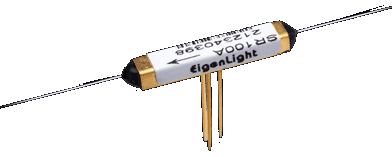
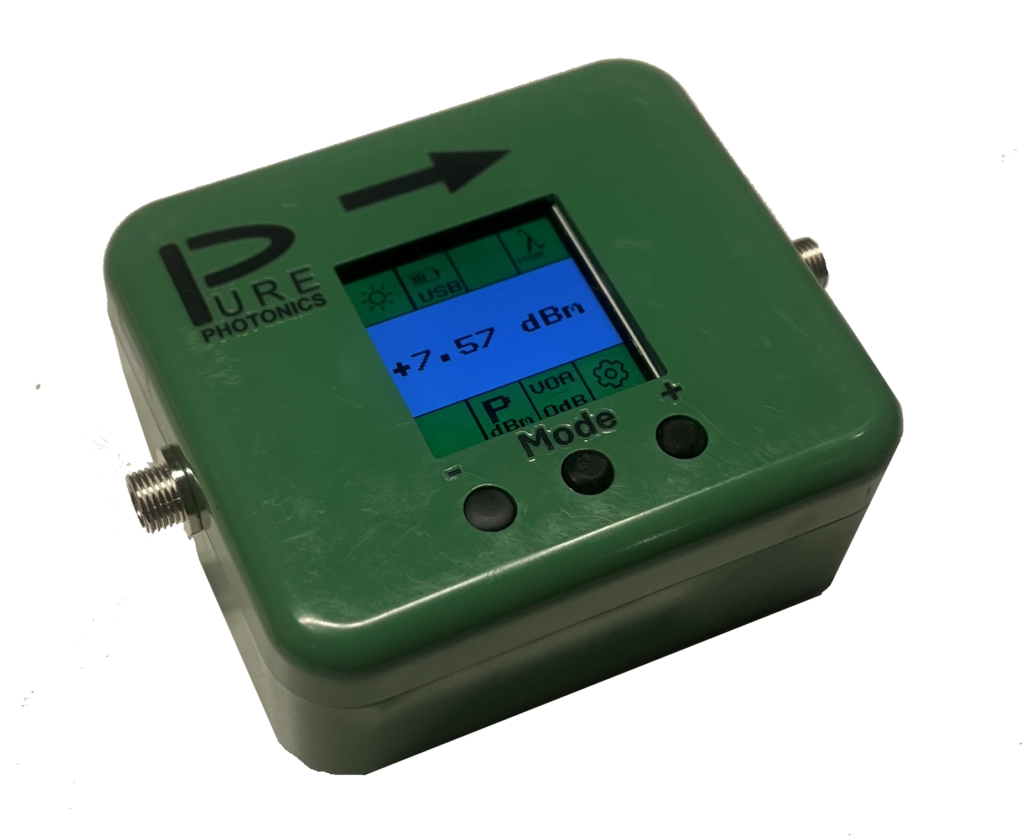
The PPAA1xx is a low-cost and compact instrument for measuring the power of a signal being transmitted through an optical fiber. Unlike conventional power meters, this power monitor can be installed in live systems for real-time, continuous power measurement, without compromising system performance.
The PPAA1xx is a low-cost inline optical power monitor, featuring a digital readout of the instantaneous power of a transmitted signal. The product utilizes optical tap technology that maintains fiber continuity, while measuring optical power. This allows for unrivalled performance among competing technology, including high directivity, low loss and low PDL. These features, in addition to the product’s long battery life and intuitive user interface, make it ideal for testing and monitoring the optical power of FTTX, Data Centers, Metro or Long Haul optical networks.
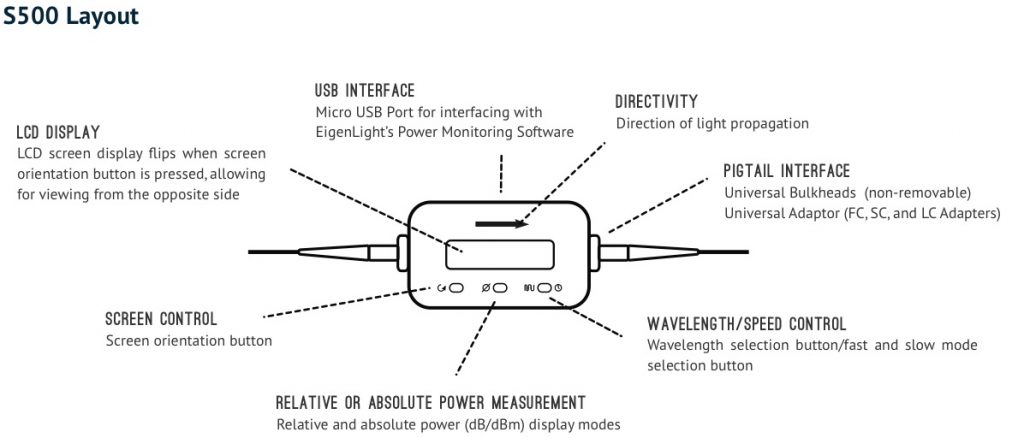
The three button fingertip controls allow for the end user to quickly select the appropriate wavelength (up to three), fast or slow sampling rate and relative or absolute power reading. It comes with an advanced power saving feature that will turn the device on only when it senses optical power, ensuring a long battery life of up to three years. The product also comes with a USB-C interface for device power, remote control and monitoring.
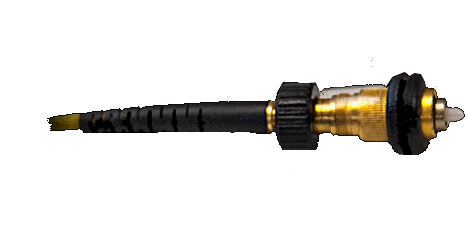
The EigenLight manual inline variable fiber optic attenuator (VOA) offers exceptional quality and reliability. The custom assembly is built for the most demanding OEM, production or lab applications.
The variable Attenuator Patch Cord provides a compact and simple means for manually adjusting optical signals in fiber optic systems and test sets. When mated to a standard connector, the variable attenuator connector causes the optical signal to become attenuated by creating a variable air gap between the connector ferrules. Attenuation is adjusted by means of a self-locking screw mechanism.
Designed to be used with the S500 power monitor.
Pure Photonics is making jpower monitoring arrays with analog output option and VOA (Variable Optical Attenuator) option. Array counts of 2, 4, and 8 are available in standard formfactor. Higher count products can be custom configured (e.g, 16 or 24 in 19″ rack).
Each unit has a digital interface (micro-USB) to control the channel selection, read the detected power and to control the VOA.
Power supplies are integrated on-board with a banana-plug input and a barrel plug input (switch selectable).
Optional built in VOA on each channel to either select a fixed (and changeable) attenuation level or controlled with control loop to a target output power.
Optional analog output option with output voltage proportional to the logarithmic power (i.e. 1mV per dBm, different conversions are possible).
